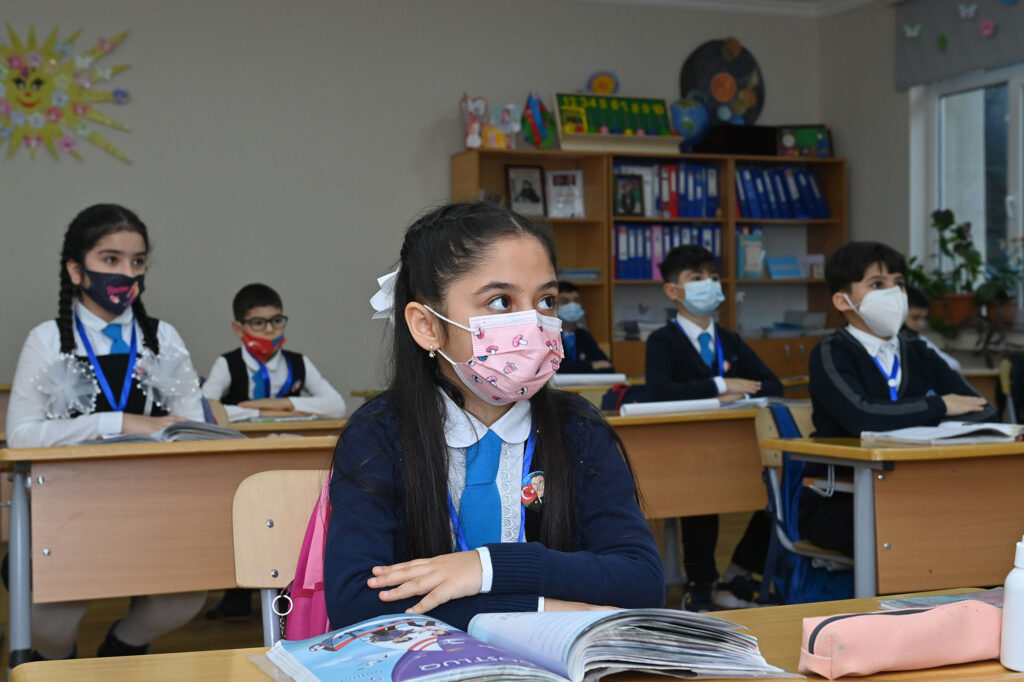A doctor in Azerbaijan has been detained and has given a public apology after warning that the authorities were preparing for ‘mass infections’ of COVID-19 in schools.
Ilaha Majidova, who had been treating coronavirus patients at the Gobustan Central Hospital in Baku, was taken into custody by the State Security Services on Tuesday.
Majidova was detained for allegedly publishing an audio recording that was widely shared on social media in which she warned that hospitals were being equipped to treat children as schools reopened.
From Monday, education in Azerbaijan was partially restored for pre-school and primary schools across the country. According to the Ministry of Education, around 630,000 primary school students and 110,000 preschool-aged children have gone back to school.
In the audio recording, a woman, allegedly Majidova, states that the ‘new strain’ of the coronavirus was more prevalent among children and was also more deadly.
According to the State Security Services, Majidova caused ‘confusion and unfounded concern’ among the public. They said that she would be brought to justice ‘in accordance with the law’.
The State Security Services also released a video in which Majidova apologises to the public, insisting that she regretted sharing the audio recording which she said was based on misconceptions. She said she did not think about the consequences of this action during the ‘sensitive period’ of the coronavirus pandemic.
No new variant detected in Azerbaijan
The Azerbaijani Management Union of Medical Territorial Units (TABIB), which is leading anti-coronavirus measures in the country, denied the claims made in the recording.
‘According to an official statement from the World Health Organisation, there is no evidence that the new strain affects the severity of the disease or that it is widespread among children’, TABIB told Azertac.
Neither TABIB nor the woman in the original recording specified which ‘new strain’ they were referring to. Several mutations of the disease, including English and South African variants, have proven to be more infectious.
TABIB did not deny the possibility of a new strain increasing the rate of infection, and consequently, increasing the number of patients. However, they said that no cases of new varients of COVID-19 had yet been detected in Azerbaijan.
In accordance with new regulations, parents in Azerbaijan have the right to decide if they wish to send their children to school or limit their learning to online and TV classes. A large proportion of parents have remained reluctant to resume face-to-face schooling, believing that this puts their children at risk of contracting the virus.
Paediatrician Sabina Jafarova told OC Media there were indications that new strains of the virus had a higher propensity to infect children. ‘We haven't established any causal relationship yet, but we can see it in statistics’, she said.
She said that even if more children were to be infected, this would not necessarily be in a severe form. ‘Most likely, as in the cases we have seen before, for juveniles, the infection will be asymptomatic’.
‘Children’s immune systems are sharpened to repel viral and bacterial attacks, and even a mutated coronavirus will not become more dangerous’, she stated.




 2 February 2021
2 February 2021



